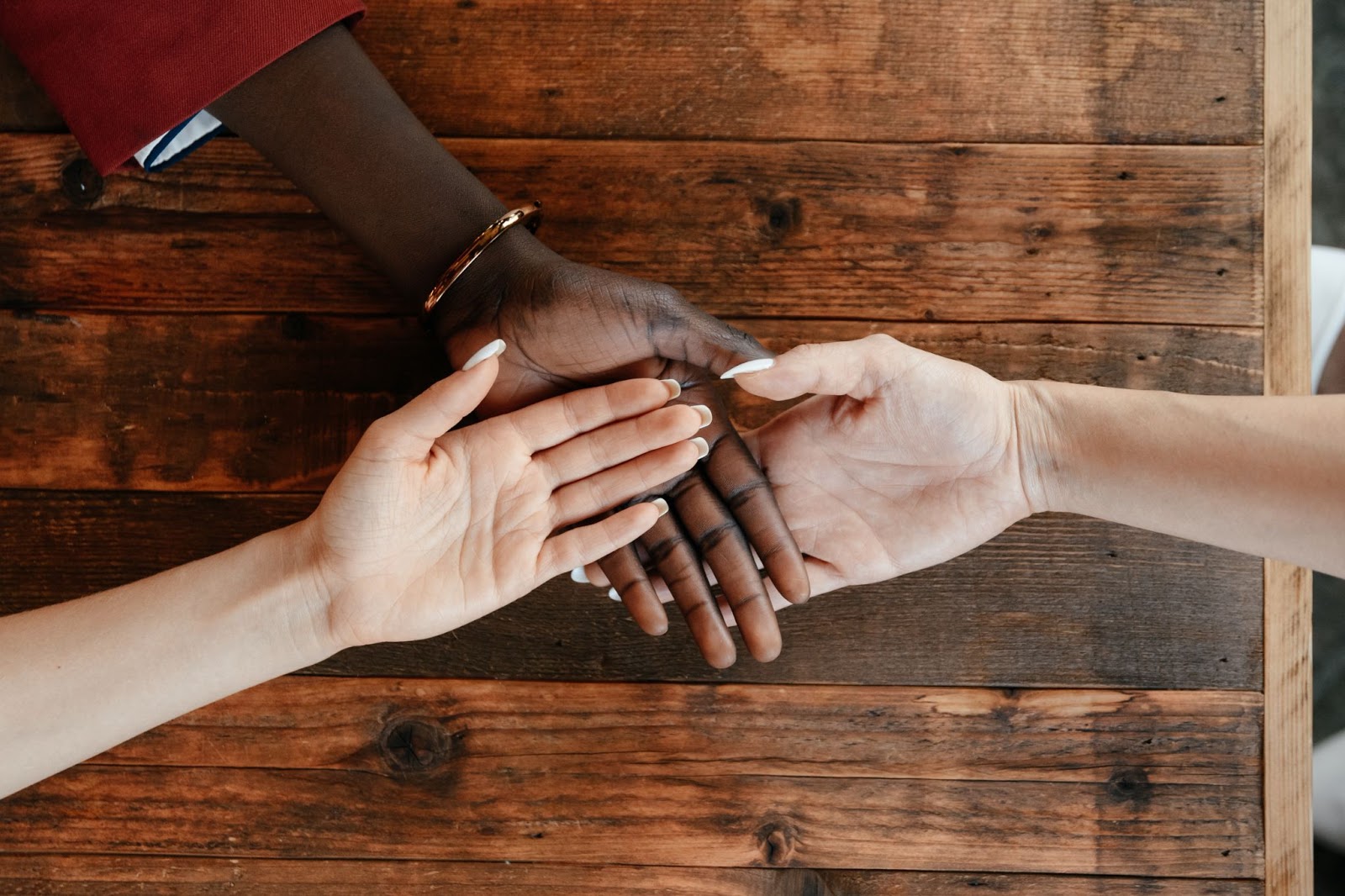The first step for people who want to become sober is often to go through a drug detox. For many dealing with substance use disorder, it’s scary to think about what is going to happen to their body during a drug detox.
The reality of it is that a drug detox can be very stressful and painful to go through, but the outcome of a successful detox is a new chance at life. Substance use disorder is both a mental and physical disease, but a person is able to ease the physical effect that addiction has by going through a detox.
When you regain more strength and control of your body, you are more likely to tackle the mental blocks that addiction causes. Going through a detox is the first step and it’s one you can take at Soba Recovery.
What is Drug Detoxification?
Drug detoxification is the removal of toxic substances, such as drugs and alcohol, from a person’s body. When you decide that you want to become sober, your body does not immediately agree with your choices.
You might experience withdrawal symptoms which can be painful and make you ill, and these might be too much for you to handle on your own. It’s not suggested that you try to detox alone. Many people who try to detox on their own do not succeed because the symptoms can be so bad. When you become ill from withdrawals, your cravings can be very intense and overpowering. It’s hard to say no to the thing you know will make you feel better when you are in that amount of pain.
Drug detoxes are done in facilities with trained professionals who can assist you properly through the process to ensure that you are successful and safe. In a medical treatment facility their main concern is to help you through the stages of withdrawal so that you don’t relapse.
Providers can monitor you during your detoxification and take note of how your body is reacting and what symptoms you are experiencing. Being monitored during this time period can be relieving for those who are nervous about how they will be affected. Knowing you are in good hands can make for the detox experience to feel a little less intimidating.
Medical Detoxification
Medically assisted detoxification is described by NIDA as a detox that safely manages the process and physical symptoms of withdrawal. When your detoxification process is being monitored by medical professionals, it’s considered to be medically assisted. This is the kind of detoxification that is encouraged, as it provides a safe space to experience the withdrawals as well as it ensures that you are doing it in a proper manner.
There are medications that can be used during detoxification to help stabilize your body’s reactions to the absence of toxic substances, and this is most easily obtained when with trained professionals. There are a few things that happen when you go into a facility to receive a detox treatment so that they can ensure that you are getting the personalized care that you need in order to fight your addiction.
Assessing Your Needs
When you first arrive at a treatment facility, patients must receive an evaluation that assesses what their specific needs are. Each individual is different, so the patient will need to give an honest description of their medical history and current addiction to the provider in order for the facility to come up with a successful treatment plan. It’s best to be open with your provider so that you can receive proper treatment. While detox is often the first step, it’s not the last. You want to start your path to recovery off with strong roots, so having a solid foundation with the start of your detoxification is essential.
This is not the time to hide things from your provider. The reason you entered into a treatment facility is because you want to get better and you no longer want your life to be dictated by drugs. The point of an initial evaluation is for the provider to better understand what your needs are, potential barriers that might come up, what your background is, and what your future goals are for yourself and your recovery.
Coping with Withdrawal
Your body and mind have become accustomed to having substances in your system. In order for your body to get rid of the harmful substances, you need to allow it to cleanse itself fully. The physical symptoms of drug withdrawal can be excruciating, and when tried to do alone, it can often lead a person back to using.
Everyone’s body is going to react in a different way, so having a team of professionals there to get you through it and help you adapt to the new changes will be beneficial in your recovery process.
There will be a team of professionals that are available to you throughout your detoxification. There are ways for you to be supported, whether that be with medication or extra psychological support. Detox centers often have teams of people with diverse backgrounds to help tend to you when in the stages of withdrawal.
Both medical doctors and psychologists are a part of the process in order to best satisfy your needs. This process is already hard enough, the goal of a detoxification center is to give you a push towards making your life easier.
Creating a Treatment Plan
It’s important that once the drugs and alcohol have cleared from your system that you are given a comprehensive treatment plan in order to maintain sobriety. The support staff at your facility will focus to get your physical and mental health to a good place. The process does not end after the detoxification. Once you have gone through the detox, it’s important to discuss ways to maintain your current state, but it’s important to recognize that the physical issue was only half of it.
There are many barriers to staying sober that can be presented when you don’t try to mend the mental health issues that come with substance use disorder. Your treatment plan should focus on both physical and mental health, but should really solidify your goal by committing to residential inpatient treatment and aftercare, including considering sober living. Often structure is needed to maintain sobriety, so finding places where you can do this can help to limit the chance of relapsing.
Along with planning on where you should go next, you should plan to have certain people in your life who you feel comfortable with to be listed as emergency contacts and used as support. Sometimes having this person be family or a close friend can be intimidating because you don’t want to feel judged by them or that they are embarrassed by you.
It’s important to note that most of your loved ones want to help you and be a part of your recovery journey, but if this is the case for you, looking into getting a sponsor during your recovery process could be extremely beneficial.
What Exactly Happens To Your Body During Detox
For someone who is dealing with substance use disorder, their body and mind become addicted to the presence of that drug in their body. This results in a dependency to the drug that can create barriers when you are trying to become sober. During a detox your body will most likely go through withdrawal symptoms.
These symptoms can include both mental and physical symptoms and you can experience a range of different symptoms throughout the process. Depending on the substance that you are detoxing from, you might experience different symptoms compared to other drug detoxes.
Some common physical examples of drug and alcohol withdrawal are:
- Fever
- Vomiting
- Sweating
- Lethargy
- Tearing eyes
- Runny nose
- Nausea
- Diarrhea
- Muscle cramps, aches, and tension
- Tremors
- Increased appetite
- Dehydration
- Increased heart rate
- Increased blood pressure
- Seizures
Some common mental examples of drug and alcohol withdrawal are:
- Anxiety
- Poor concentration and memory
- Insomnia
- Restlessness
- Mood swings
- Agitation
- Depression
- Delirium
- Seizures
- Irritability
- Paranoia
- Hallucinations
Everyone experiences things differently. While the process can be daunting, it means that you are on the right path towards recovery. Due to the severity of some of these withdrawal symptoms, it’s suggested that you only attempt detox under medical attention. This will help to ensure your safety and success.
Drug Detox is Important for Withdrawal
A medically assisted drug and alcohol detox can be the safest way to come off of using. Some of the symptoms that you experience during withdrawal can be life-threatening and by being taken care of at a treatment facility or rehab program, you are more likely to get the proper treatment needed to ensure your safety.
When you are not in a controlled environment, these symptoms of withdrawal can lead to serious complications and sometimes even death.
For people who are addicted to substances that can cause more of these life-threatening withdrawal symptoms, like heroin, methamphetamines, alcohol, or opioid withdrawal, you can lower the risk of an overdose by attending a detox facility.
Relapse is common when attempting withdrawal alone, but if your body has already adapted to the lowered amount of substance running through your body, there is a possibility that if you relapse, you could overdose. When in a controlled environment, this is less likely to happen.
If you are attempting to become sober, then the last thing that you want is for you to harm yourself more. Visiting a detox center could be the thing that saves you.
How Long Will a Detox Take?
Detoxification is different for everyone, and depending on the substance that you are trying to detox from, it could take anywhere from 3-10 days. When a detox is medically assisted, you can be assured that you will not relapse during your stay. This means that the process will take less time than if you were to try to attempt it alone.
There will be people who will be watching you and taking care of you throughout the medical detox process, which will help to control any urges you might have. Staff at detox facilities are trained to assist you in both the physical withdrawals you’ll experience and the psychological effects. When your body has successfully gone through the detox process, that means you’ve completed the first phase of recovery from substance use disorder. There is a lifetime ahead of you to continue fighting for your sobriety, and you’ve only taken the first step.
Detoxification is only one part of the process. Though it won’t take you long to go through the process, maintaining sobriety is a different story. It is not over once you have detoxified from substances. You have to be willing to stay sober, which could be for the rest of your life.
Different Medicines Used in Detox
For some substances, there is medication that can be administered to help the withdrawal symptoms so that the detoxification process can be less painful and so cravings can be reduced. Buprenorphine and naltrexone are FDA-approved medications used for treating addiction.
- Methadone: This medication is used to help reduce people’s use of heroin or other opiates. Methadone helps by changing how the brain and nervous system react to pain.
- Buprenorphine: This medication treats opioid use disorder and it produces effects such as euphoria at low to moderate doses. It’s weaker than an opioid but can help to minimize side effects to withdrawal symptoms.
- Naltrexone: This medication treats both alcohol and opioid use disorder. Naltrexone binds and blocks opioid receptors and reduces substance cravings.
There is also the possibility of being put on a tapering schedule which allows for the gradual reduction of drug use to minimize the withdrawal symptoms. This kind of detox program is almost always done under medical supervision so that the patient is taken care of.
Tapering minimizes withdrawal symptoms by allowing for the individual to lower the dosage intake of the drug slowly, so that they don’t have extremely negative consequences from quitting.
Where To Find a Detox Center
Here at Soba Recovery, we offer a multitude of services to help you or a loved one into recovery from substance use disorder. We have two different locations, one in San Antonio, Texas and the other in Mesa, Arizona. The individualized approach that Soba Recovery takes in our addiction treatment programs allows for the patient to quit using drugs and alcohol on their own terms. This approach also allows for a patient to test out different substance abuse treatment methods that work for them to begin their path to recovery.
Soba Recovery prides itself in incorporating a variety of methods into each individual’s recovery journey, with the hopes that the supportive environment will help the individual to process the stress that they are undergoing and to build confidence in their ability to achieve sobriety. We offer services such as nutritional culinary services, yoga, hiking, mindfulness, and wellness groups. There is something that can be found for everyone to enjoy.
Not only do these locations offer a detox center, but they also provide residential inpatient, extensive outpatient, partial outpatient, outpatient and sober living services to individuals who are seeking sobriety. We know that detoxification is only the first step towards recovery, and that it’s not the only thing you need to do in order to recover from substance use disorder.
Consider continuing on past detoxification with Soba Recovery’s offerings in order to ensure that you create a healthy sober life that you will be able to maintain.
In Summary
If you are still worried about what your body will go through during a drug detox, think about the damage your substance abuse disorder might have already caused to it and how much better off your body will be once you’ve become sober.
The detoxification process can be scary and painful, but the end result is getting a chance to regain control of your life back. You will experience withdrawals, but after a week, you should be on the road to recovery. Visit our detoxification centers at Soba Recovery to start the first step towards sobriety—it will be worth it!
Sources:
Understanding Drug Abuse and Addiction: What Science Says | NIDA








